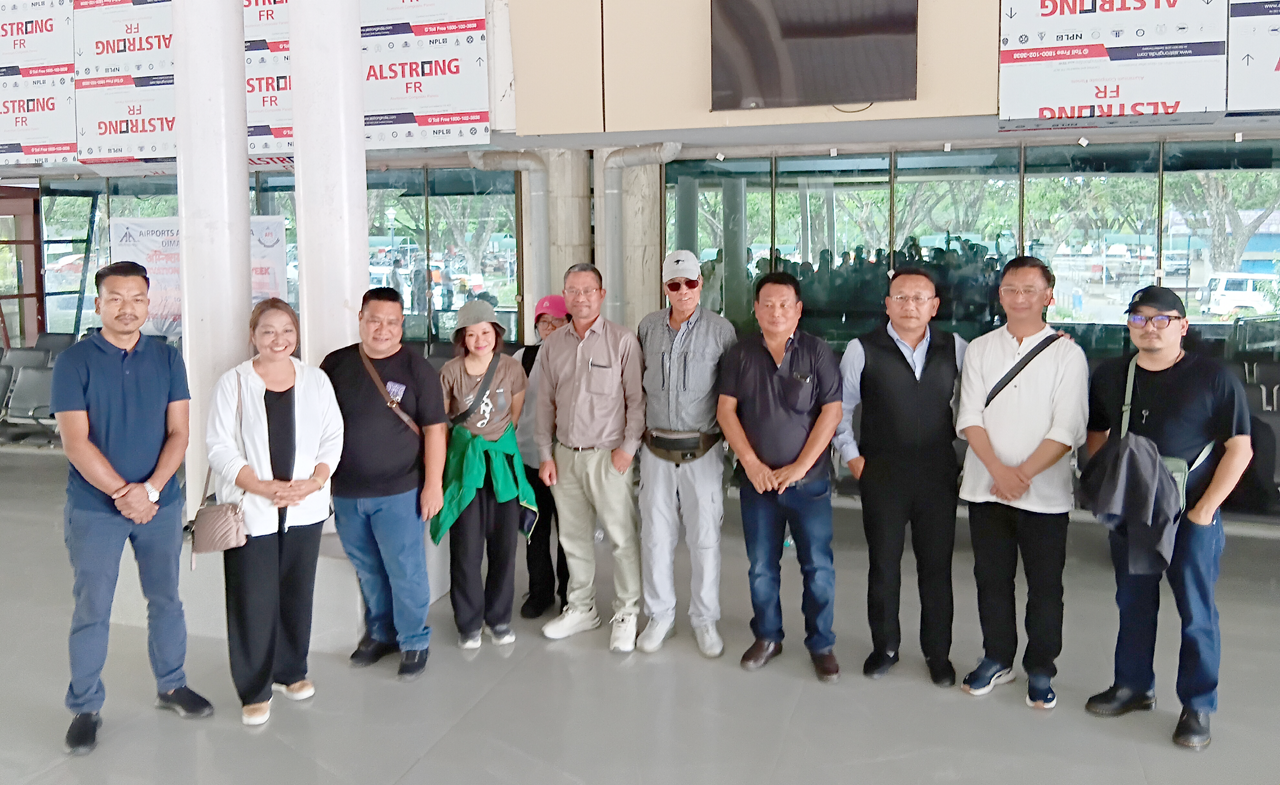A Naga delegation comprising members of the Forum for Naga Reconciliation’s (FNR) Recover, Restore, and Decolonize (RRAD) team and tribal leaders returned to Dimapur on June 15, following a week-long visit to the Pitt Rivers Museum at Oxford University, United Kingdom.
The visit was aimed at initiating formal dialogue on the repatriation of Naga ancestral human remains housed at the museum.
The delegation was invited by the museum as part of its ongoing efforts to address historical injustices linked to colonial-era collections and to promote meaningful collaboration with Indigenous communities.
Speaking to media personnel at Dimapur Airport, RRAD Coordinator, Ellen Konyak Jamir described the visit as a “momentous” milestone for the Naga people. She expressed gratitude for the widespread support from Naga communities and praised the contributions of all those involved in the repatriation initiative, including the Department of Art and Culture.
Jamir noted that the visit marked a meaningful and historic engagement for the Naga people, highlighting the significance of the collective effort. She acknowledged the strength and dignity with which the tribal leaders represented various Hohos and communities, and expressed gratitude for the guidance and support received throughout the journey.
Download Nagaland Tribune app on Google Play

She commended the Pitt Rivers Museum for its openness and willingness to engage with Indigenous voices. According to Jamir, the museum has already removed all human remains from public display and is actively revising its policies to reflect a more ethical and respectful approach and also acknowledge their courage in confronting difficult historical legacies.
When asked about the outcome of the visit, Jamir referred to a public declaration issued by the delegation and emphasized that the dialogue marked only the beginning of a long and complex international repatriation process.
She further shared that over the past five years, the RRAD team has been working closely with Naga communities, churches, and institutions across various districts to raise awareness and ensure that the initiative remains community-driven.
Jamir stated that the revelation of Naga ancestral remains being kept in museums abroad was a deeply distressing discovery for many, as the remains had been treated as mere specimens and collectibles. Despite the emotional impact, she affirmed the community’s collective resolve to move forward.
She also recognized the Pitt Rivers Museum’s positive response and ongoing efforts to address these concerns, viewing their actions as a genuine step toward meaningful institutional change.

